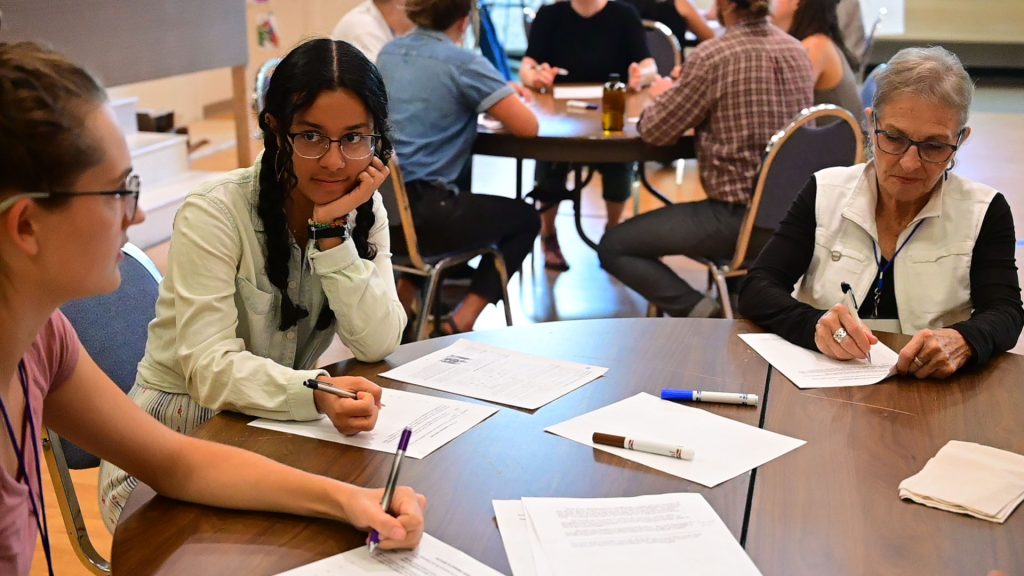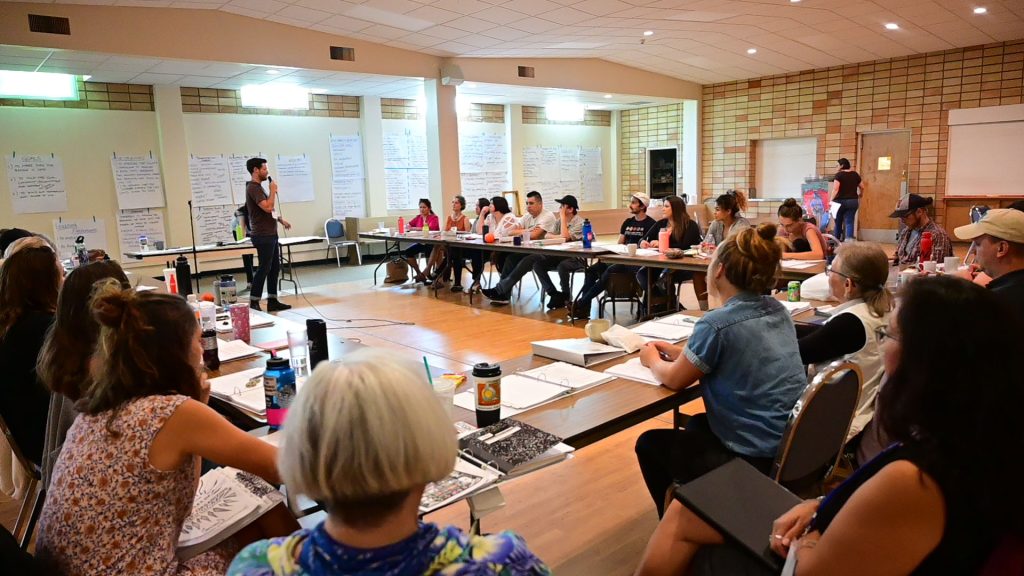Principles of Community Organizing
2024 Principles of Community Organizing Training
Apply now! Our second Principles of Community Organizing (POCO) Training of 2024 will be hosted in Norfolk, Nebraska, from Wednesday, November 20th through Friday, November 22nd.
WORC’s Principles of Community Organizing training covers the most important skills for organizers and leaders of grassroots community organizations. Applications are due by the end of the day on Friday, November 8th.
Train for change with Principles of Community Organizing Training

“Learn the lost art of leveraging your effectiveness by mobilizing others. Plus, a first-class focus on strategy, assessment, and tools for success.” – Jim Pissot, WildCanada Conservation Alliance
WORC’s Principles of Community Organizing training develops the skills of leaders and staff to build powerful organizations and launch winning issue campaigns. The hands-on workshop covers the basics of leadership, fundraising, organizational development, and community organizing.
This four-day training will sharpen your knowledge of and skills in…
- Why grassroots organizing is effective
- Roles of members and staff
- Membership recruitment
- Developing an issue campaign
- Planning and taking actions
- What makes a healthy organization
- Leadership development
- Building strong public relationships
- Working with the media
- Running good meetings
- Grassroots fundraising
- Why elections matter and how to engage
Using small group activities, videos, role plays, 1-1 exercises and open discussions, WORC’s experienced trainers engage participants in a lively, interactive, and participatory learning environment. More than 2,000 people have graduated from POCO over the last 30 years, and POCO is recognized as one of the best community organizing trainings offered anywhere in the country.
“The energy here has been amazing. I cannot express my gratitude enough. Thank you for being so inclusive, responsive, empathetic, direct, and accommodating” – DJ Benthin, DRA
Who Should Apply:
Ideal applicants come from all walks of life, from professional organizers and campaigners looking to put their work into the context of a developed community organizing tradition and practices, to beginners who are passionate about organizing and want to start their learning journey.
Tuition for this workshop is $100 for approved members of WORC’s member organizations and $500 for non-WORC participants. Tuition does not include travel, meals, or lodging.
“Just a few days after returning from the workshop, I had the opportunity to do my first large-donor ask. The result was a $750 donation to Dakota Rural Action. Because of my experience at this workshop, I feel I will be able to continue my fundraising work for DRA with this same level of comfort and confidence.” – Wyatt Urlacher, member

